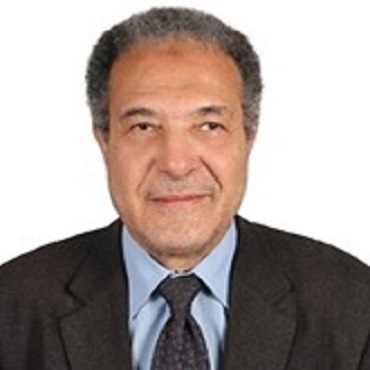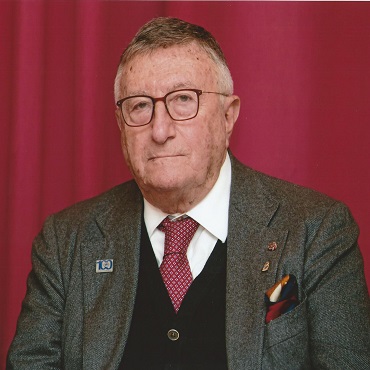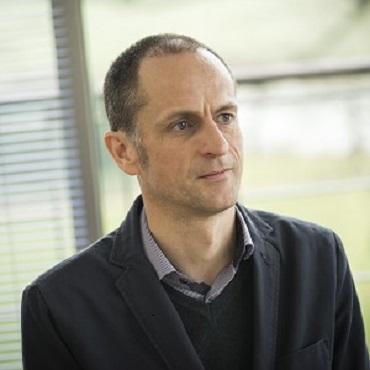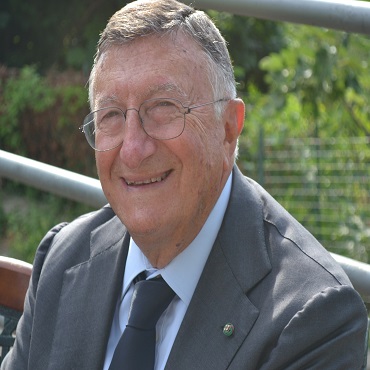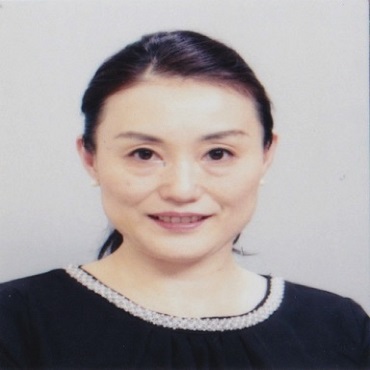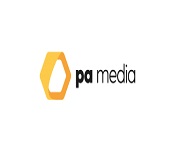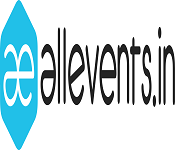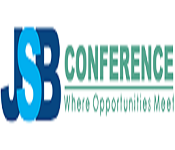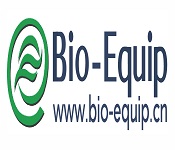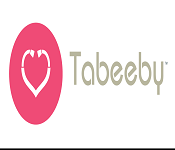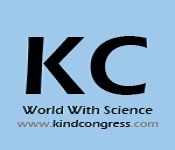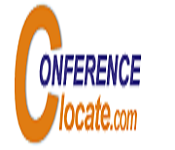
Immunology 2020

Theme: Expanding the Possibilities to Fight Against Diseases
We delightfully invite all the participants across the world to attend the Webinar on Immunology which aims for “Expanding the Possibilities to Fight Against Diseases’’, to be held during October 13, 2020. Our main motto is to unify individuals in the scholarly community and society keen on immunology to deliver their talks on the current trends and significant issues related to research and clinical trials important for the public to be shared. Immunology 2020 acquires a wide platform for Immunologists, Doctors, Researchers, Young Researchers, Business Delegates to exchange ideas and knowledge.
Our targeted audience will be Immunology Students, Scientists, Immunology Researchers, Immunology Faculty, Medical Colleges, Immunology Associations and Societies, Business Entrepreneurs, Training and Research Institutes, Manufacturing Medical Devices Companies and Pharmaceuticals.
Session 01: Immune System and Immunology
The immune system is a host protection system that includes several biological structures and processes in a disease-protecting organism. Immunology is a diverse and growing discipline that can be defined as the study of the mechanisms of host defences involving tissues, cells and molecules. Immunologists try to understand the nature of the immune system, how the body protects itself against infection and what happens when everything goes wrong.
The current world of immunological research has expanded considerably, even in the current environment of highly interdisciplinary and collaborative science, future immunologists will probably need to be at least familiar with computational, structural and system biology, nanotechnology and tissue engineering. At the same time, from primarily a host defence mechanism to a fundamental homeostatic system with organism-wide physiological and clinical significance and potentially transformative biotechnological and therapeutic applications, our perspective of the immune system has gradually developed.
Session 02: OncoImmunology
Oncoimmunology or Cancer Immunology is one of immunotherapy's most popular applications. The tumor microenvironment is a major aspect of cancer biology, leading to tumor initiation, tumor growth and therapy responses. The primary focus of Cancer Immunology Researches is to learn how the immune system works or does not work against cancer. The success of cancer immunotherapy in recent years, including monoclonal antibodies (mAbs), cancer vaccinations, adoptive cancer therapy and immune regulation point therapy, has revolutionized conventional cancer treatment. New plan of actions for blocking immune control point regulators, overcoming immune resistance such as engineered T-cell therapy or identifying novel tumor antigens through next-generation sequencing have now opened a new age of immunotherapy for cancer.
Session 03: Autoimmune Diseases and HIV
Autoimmune diseases arise when inherited autoimmunity progress to pathogenic autoimmunity. Genetic factors as well as environmental causes dictate this development. The global market size of Autoimmune Disease Therapeutics was $109,833 million in 2017 and is expected to reach $153,320 million by the end of 2025, with a CAGR of 4.2% 2018-2025.
HIV is a category of diseases caused by human immunodeficiency virus infection. HIV weakens the immune system and impedes the ability of the body to combat disease as they destroy T cells, macrophages and dendritic cells. There is no treatment for HIV at the moment, but there are many clinical studies devoted to a cure. Developing an HIV vaccine would save millions of lives. Share your research findings on Autoimmunity and HIV to the world; this can be possible by our Global Immunology Submit.
Session 04: Transplantation and Computational Immunology
Transplantation, the process of moving cells, tissues and organs from one location to another to replace or repair damaged or ill organs and tissues. During transplantation, the immune system plays an important role. In transplant medicine, immunological research has led to enormous advances. Nevertheless, the most formidable obstacle to successful transplantation remains immune rejection. Continued research is needed to find ways to mitigate the risk of rejection, enhance diagnosis and sustain the transplant's long-term survival, all of which would have a significant impact on the supply of strained tissue.
Computational immunology is a research discipline that combines approaches to immunology from high-throughput genomics and bioinformatics. This usually aims to turn immunological information into computational problems, solving them by using mathematical and statistical methods and then translating the findings into definitions of immunological significance. The Immunology Conference is an excellent platform to discuss with co-researchers and students in order to know more interesting developments in this field.
Session 05: Immunogenetics
Immunogenetics is the medical genetics science which explores the interaction between the immune system and genetics. This involves researching normal immunological processes and discovering genetic variations that lead to immune deficiencies, which can lead to the discovery of new immune disease therapeutic targets.
Immunogeneticist’s main focus is on recognizing, characterizing and sequencing genes coding for multiple receptors and immune response mediators. Scientists have been able to perform blood transfusions and organ transplants safely by researching immunogenetics as well as treating autoimmune diseases such as diabetes. In future, Immunogenetics will have a wide platform for young pioneers in research and the development of technologies will facilitate gene-related corrections.
Session 06: Stem Cells Immunology
In addition to being commonly used for regenerative medicine, stem cells are also considered a useful tool in cancer treatment. Stem cells have long been used to renew the immune system for patients treated with radiation or chemotherapy. Stem cells have recently been designed to bring therapeutic reagents to target tumor sites. Cancer vaccines are researched and tested for cancer treatment based on knowledge of cancer stem cells. Using in-duced pluripotent stem cells, active T cells were created to support immunotherapy for cancer. These are due to stem cell's unique characteristics, such as immunological tolerance, migration and tissue repair. Stem cells are used as carriers for carrying drugs or therapeutic vector viruses to tumors in gene therapy for cancer treatment.
Current research reveals a wide range of ways in which stem cells are designed to fight diseases such as cancer. A breakthrough in this field was created by the recent discovery of reprogramming patient-derived cells. There is no doubt that in the future of cancer treatment, stem cell technology will play a major role.
Session 07: NeuroImmunology
The study of the relationship between the central nervous system (brain and spinal cord) and the immune system is Neuroimmunology. Neuroimmunology helps develop new pharmacological treatments for various neurological conditions. Neuroinflammation and neuroimmune activation have been shown to play a role in the ethology of a number of neurological disorders such as stroke, disease of Parkinson and Alzheimer, multiple sclerosis, pain and depression associated with HIV, etc.
Cognitive neuroscience becomes a very powerful way for understanding human cognition, while results can explain functional brain structure, such as operations undertaken by a certain brain area and the network of decentralized, distinct neutral area that support a particular psychological representation. Here is a scientific meeting your new challenges at Immunology Symposium.
Session 08: Haematopoietic, Lymphoid Malignancies and Immune System Development
Tumors that affect the blood, bone marrow, lungs and lymph system are haematopoietic or lymphoid malignancies. Haematopoietic and lymphoid tissue malignancies include leukaemias, myeloproliferative neoplasms, dyscrasia of plasma cells and neoplasms of dendritic cells.The immune system takes on a double job malignant growth: it counteracts the outgrowth of tumor cells and also shapes the tumor cells immunogenicity. Cells of the disease can defeat the immune system by preventing the activation of T lymphocytes.
In order to focus on these T lymphocyte induction modulators, new immunotherapies have been created. The immune checkpoints, defined as immune system atoms that either turn a flag up or turn a flag down. Through representing T cell function, the vast majority of malignancies protect themselves from the immune system. According to the current research report, an expansion in the interest of profitable is the most essential driver of the market
Session 09: Thyroid Autoimmunity
Hashimoto's thyroiditis, also called Hashimoto's syndrome, is an autoimmune disease, a disorder in which the immune system switches against the body's own tissues. For people with Hashimoto, the thyroid is damaged by the immune system. AITD can be considered the most common endocrine autoimmune disease. The clinical entities found in AITDs are diverse and vary depending on whether there is predominance in the patient of a state of hypothyroidism (HT), hyperthyroidism (GD) or both painless thyroiditis (PT), postpartum thyroiditis (PPT) and sub-acute thyroiditis (SAT). There is a need for an international consensus to diagnose AITD accurately.
Among these patients, regular CVD screening should be considered. These findings may help further the study of AD's common mechanisms, improve patient satisfaction and identify public health policies, especially for patients with RA. The current trend and future aspects can be learned and shared by our Immunology Workshop.
Session 10: Allergy and Immunology
Allergies, also known as allergic diseases, are a number of conditions attributable to the hypersensitivity of the immune system triggered by typically harmless factors in the environment. The division has active research programs based on laboratory, clinical research and publishes more than 50 scientific papers per year. The research programs concentrate on inner-city asthma, the role of allergy sensitivity to the environment in allergic disease, the natural history of food allergy, food allergy treatment, and immune dysfunction pathogenesis in ataxia telangiectasia. In this decade, there is a real cure on the horizon.
Session 11: Immunization and Vaccination
Public health’s goal is to prevent illness. Preventing an infection is much easier and much more cost-effective than treating it. Immunization is a means of providing effective defence against many dangerous and harmful pathogens by stimulating the immune system of an organism.
The development of vaccines against more complex infections such as tuberculosis, malaria and aids has been challenging and has been modest to date. The final success of these infections that involve multiple vaccines, each of which activates a different arm of the immune system. In the longer term, many non-infectious diseases are likely to be used to stop or modulate the course. Therapeutic cancer vaccines have already made progress and potential future targets include obesity, diabetes, asthma and Alzheimer's disease.
Session 12: Immunoresearch and Immunotechnology
Immunotechnology is a technique that incorporates the immune system's cells and molecules.
Advances in immunodiagnostic technologies provide the foundation for the design of antigen detection platforms capable of meeting strict tolerance, specificity, rate of assay, robustness and simplicity requirements. Emerging technologies broaden our understanding of the human immune system, but capitalizing on its development would probably require theoretical and functional changes in the way research is conducted.
Scope:
Immunology Conference is comprised of various sessions designed to offer comprehensive knowledge.Young investigators can submit abstracts in oral or poster sessions describing their latest scientific results. This global conference provides an opportunity for young delegates /speakers to communicate and share new innovations on all immunology topics.
Present business markers operating in the global immunology market are much concern on constant innovations and upgrading their present products index with new and effective products for better treatment results in patients.
Awareness among the public regarding immunological diseases in both developing and developed countries and the widespread presence of immunological disorders due to environmental factors, thus pushing the global immunological market growth.
The global market size was valued at USD 77, 3665.4 million in 2018 and is estimated to reach USD 143,833.2 million by 2026, showing a CAGR (Compound Annual Growth Research) of 8.1% in the future period. This analysis report is on the basis of major geographic divisions and current market trends of North America, Asia Pacific, Europe, other parts of the world.
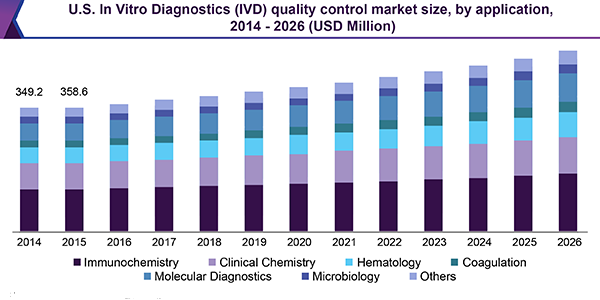
Global Immunology Universities:
Asia
- Osaka University, Japan
- Peking University, China
- National University of Singapore, Singapore
- Fudan University, China
- Capital Medical University, China
- James Cook University, Singapore
- Birla Institute of Technology and Science, India
- University of Tokyo, Japan
- Indian Institute of Technology, India
- Seoul National University, South Korea
- Medical Science in Clinical Pathology, Malaysia
Middle East
- King Saud University, Saudi Arabia
- Cairo University, Egypt
- Ain Shams University, Egypt
- Kuwait University, Kuwait
- Alexandria University, Egypt
- University of Khartoum, Sudan
- Shiraz University of Medical Science, Iran
- Near East University, Turkey
- Sabanci University, Turkey
Europe
- University of the West of England, UK
- University of Oxford, UK
- Imperial College London, UK
- University of Skovde, Sweden
- Norwegian University of Science and Technology, Norway
- University of Zurich, Switzerland
- Uppsala University, Sweden
- University of Bern, Switzerland
- University of Tubingen, Germany
- University College London, UK
America
- Stanford University, California
- Harvard University, Boston
- Duke University, North Carolina
- Columbia University, New York
- University of Pennsylvania, Pennsylvania
- Washington University, Missouri
Canada
- University of Toronto, Toronto
- McGill University, Montreal
- University Calgary, Calgary
Global Immunology Associations:
- European Federation of Immunological Societies, Europe
- Royal Society of Biology, UK
- Federation of Clinical Immunology Societies, USA
- International Union of Immunological Societies, Germany
- Japanese Society for Immunology, Japan
- Indian Immunology Society, India
- World Allergy Organisation, USA
- Asian Pacific Association of Allergy, Asthma and Clinical Immunology, Asian Region
- Argentina Society of Immunology, USA
- American Academy of Allergy, Asthma and Immunology, USA
- South African Immunology Society, Africa
- American Autoimmune Related Diseases Association, USA
- American Society of Gene Therapy, USA
- Australasian Society for Immunology, Australia
Top Companies:
- Pfizer Inc., USA
- Novartis, Switzerland
- Hoffmann-La Roche Ltd, Switzerland
- Merck & Co Inc., USA
- Johnson & Johnson (J&J), USA
- GlaxoSmithKline Plc., UK
- Sanofi, France
- AbbVie Inc., USA
- Bayer AG, Germany
- Eli Lilly and Co, USA
- Abbvie, USA
- Roche, Switzerland
- Amgen, USA
- Astellas, Japan
- Biogen, USA
- Mitsubishi Tanable Pharma, Japan
An unprecedented chance to broaden your skills:
Immunology conference, with leaders from all over the world concentrated on learning about immunology and its advantages. This is your best chance to reach the immunobiological community’s largest assembly of participants. Showcase your presentations, share information, meet modern-day and workable scientists, make a splash with new developments in drugs and acquire focus of title at this 2-day event. Immunology 2020 submit is characterized by using world-renowned speakers, the modern-day strategies, improvements and the present-day updates in Immunity.
Meetings International has always been at the forefront to support and encourage scientists in the fields of science and engineering to pursue their research work. Annual Immunology Congress welcomes and honours achievement in a field that continues to evolve and re-draw the boundaries of best practice. Awards offer individuals and organizations the chance to show their best work and projects to the world. To receive an award, you will be supported by our distinguished board of the leading experts in the panel, which is an indication for your formidable credentials. All of us at international conference are proud of our outstanding successes over the years. Here are some of our highlights:

Superlative Speaker Award:
Immunology 2020 will award the Speaker Award to the one who also makes a difference through his participation during the conference as to how he has excellent skills and made a significant contribution to immunology. The session chair and co-chair will pick the winner of this award. The award winner will be felicitated after the oral session has been completed. Immunology Conference encourages researchers from across the globe to take part as a speaker at these prestigious events.

Excellent Keynote Speaker Award:
Mark your presence and let the stage win over your expertise. Immunology Submit 2020 will honour the researcher who will give outstanding presentations during the event. It also acknowledges the speaker's passion and willingness to improve the experience of those with whom they come into contact. This awardee will be felicitated by one of the members of the organizing panel present during the conference.

Best Organizing Committee Member Award:
This award seeks to recognize the continuous support and cooperation provided by a member of the organizing panel from the beginning to the successful completion of the conference. Recipient of this award will be selected by the operating committee of the event. Our conference will honour the individual who has demonstrated exemplary support and guidance throughout the conference.

Outstanding Masters/Ph.D./Post. Doc Thesis Work Presentation Award:
The motive of this Award during the Immunology 2020 is to recognize individuals in the early stages of their careers that have made outstanding research, teaching, and/or service contributions to the field of the modern age. Recipient of this award will be selected by the judge of the Young Researchers Forum. This award will be given based on the presentation skills, impact of research and its applications for the Immunoresearch. Participants pursuing Masters, PhD or Post-Doctoral studies are eligible for this award. The awardee will be felicitated after the completion of all the oral presentations delivered under the Young Researchers Forum category.

Educative Poster Award:
The award recognizes individuals from poster presenters who, for a creative future have presented their excellent work and findings. A winning poster on presentation quality and clarification, method informatively, interaction criteria and scientific aspects will be evaluated. It will also be focused on the observations, evaluation and explanation of the results of the format in immunology study. The awardee will be felicitated after the completion of poster session.
Conditions of Acceptance:
To receive the award, the awardee must submit the presentation for which the award is given for publication at the website, along with author permission. Failure to submit the PPT / poster, and permission within the designated timeframe will result in forfeiture of award.
Criteria:
- All presented abstracts will automatically be considered for the Award.
- All the presentations will be evaluated in the conference venue.
- All the awards will be selected by the judges of the award category.
- The winners will be formally announced during the closing ceremony.
- The winners of the Poster Award will receive an award certificate.
- The awards will be assessed as far as plan and format, intelligence, argumentation and approach, familiarity with past work, engaging quality, message and primary concerns, parity of content visuals, and by and large impression.
Guidelines:
- All submissions must be in English.
- The topic must fit into scientific sessions of the conference.
- Each individual participant is allowed to submit maximum 2 papers.
- Abstract must be submitted online as per the given abstract template.
- Abstracts must be written in Times New Roman and font size will be 12.
- Abstract must contain title, name, affiliation, country, speaker’s biography, recent photograph, image and reference.
- Each poster should be approximately 1x1 M long. The title, contents, and the author’s information should be clearly visible from a distance of 1-2 feet.
Meetings International is announcing Young Scientist Awards through Webinar on Immunology (Immunology Webinar 2020) during August 20, 2020. This Immunology Conference focuses on “Expanding the Possibilities to Fight against Diseases”.
Immunology Webinar 2020 and upcoming webinar will recognise participants who have significantly added value to the scientific community of environmental science and provide them outstanding Young Scientist Awards. The Young Scientist Award will provide a strong professional development opportunity for young researches by meeting experts to exchange and share their experiences at our international webinars.
Immunology Webinar 2020 focuses mainly on Oncoimmunology, Transplantation and Computational Immunology, Autoimmune Diseases and HIV, Immunization and Vaccination, Immunoresearch and Immunotechnology, Stem Cells Immunology & Immunogenetics. Immunology Webinar Organizing Committee is providing a platform for all the budding young researchers, young investigators, post-graduate/Master students, PhD. students and trainees to showcase their research and innovation.
Eligibility:
Young Scientists, faculty members, post-doctoral fellows, PhD scholars and bright Final Year MSc and M.Phil. Candidates. Persons from Scientific Industry can also participate.
Benefits: The Young Scientist Feature is a platform to promote young researchers in their respective area by giving them a chance to present their achievements and future perspectives.
- Acknowledgement as YRF Awardee
- Promotion on the conference website, Young Researcher Awards and certificates
- Link on the conference website
- Recognition on Meetings Int. Award Page
- Chances to coordinate with partners around the world
- Research work can be published in the relevant journal without any publication fee
Criteria:
- All presented abstracts will automatically be considered for the Award.
- All the presentation will be evaluated in the conference venue
- All the awards will be selected by the judges of the award category
- The winners of the Young Scientist Award will receive award certificate.
- The awards will be assessed as far as plan and format, intelligence, argumentation and approach, familiarity with past work, engaging quality, message and primary concerns, parity of content visuals, and by and large impression.
Guidelines:
- All submissions must be in English.
- The topic must fit into scientific sessions of the conference
- Each individual participant is allowed to submit maximum 2 papers
- Abstract must be submitted online as per the given abstract template
- Abstracts must be written in Times New Roman and font size will be 12
- Abstract must contain title, name, affiliation, country, speakers biography, recent photograph, image and reference
Conditions of Acceptance:
To receive the award, the awardee must submit the presentation for which the award is given, for publication at the website, along with author permission. Failure to submit the PPT, and permission within the designated timeframe will result in forfeiture of award.
Award Announcements:
Official announcement of the recipients will occur after the completion of Immunology Conference.
When you want to be noticed with the content that counts, advertise with Meetings International and reach minds that matter. Meetings International is a global leader in producing high quality conferences and workshops in all major fields of science, technology and medicine.
Meetings International Conference websites are being visited by doctors, engineers, young and budding researchers, entrepreneurs, eminent scientists, academicians and Nobel laureates from various sectors of medical and non-medical sciences. We can target impressions of your advertisements by conferences subject or region and report results in comprehensive detail.
Webinar on Immunology encourages various companies and small-scale businesses to digitally advertise their products and services on its web platform which will surely help in informing and attracting new customers quickly and efficiently. The size and diversity of our advertising options provide clients with the very best customized marketing opportunities. The advertising platform we provide you is the best chance of showcasing your products/services, and branding your company.
If you are looking for a global exposure for your products and services, this is the right place for you. Display advertising improves the visibility of your products and services among specialists in your field. Bring your product to life and create instant brand awareness with a banner ad placement. Make your banner interactive to direct people to where you want them to go. We offer banner ads on our website which will be beneficial for healthcare professionals across the globe.
Our subscribers and conference attendees can be your upcoming enthusiastic customers. If you sell immunology related equipment or provide relevant services, here is your opportunity to advertise in the website that can connect you to leading experts and science specialists worldwide.
Advertisement banner must be provided by the advertising company and should be in the jpg or jpeg format. The banner must be of high resolution and must not have copyright infringement.
In case you have any queries regarding advertising opportunities, please contact our representative: contact@meetingsint.com
- Immune System and Immunology
- Oncoimmunology
- Autoimmune Diseases and HIV
- Transplantation and Computational Immunology
- Immunogenetics
- Stem Cells Immunology
- Neuroimmunology
- Haematopoietic, Lymphoid Malignancies and Immune System Development
- Thyroid Autoimmunity
- Allergy and Immunology
- Immunization and Vaccination
- Immunoresearch and Immunotechnology
- Journal of Clinical Immunology and Research
- Journal of Immunological Techniques & Infectious Diseases
- Journal of Diagnostic Techniques and Biomedical Analysis

